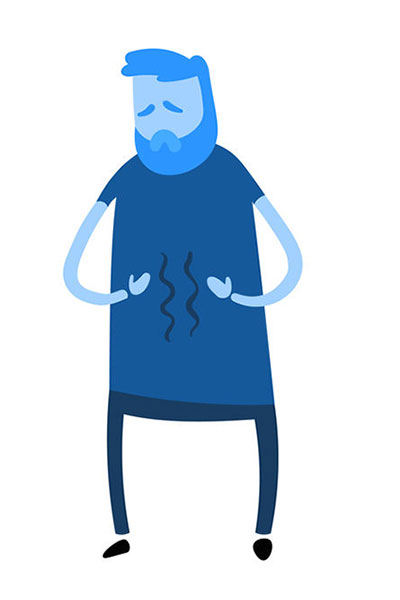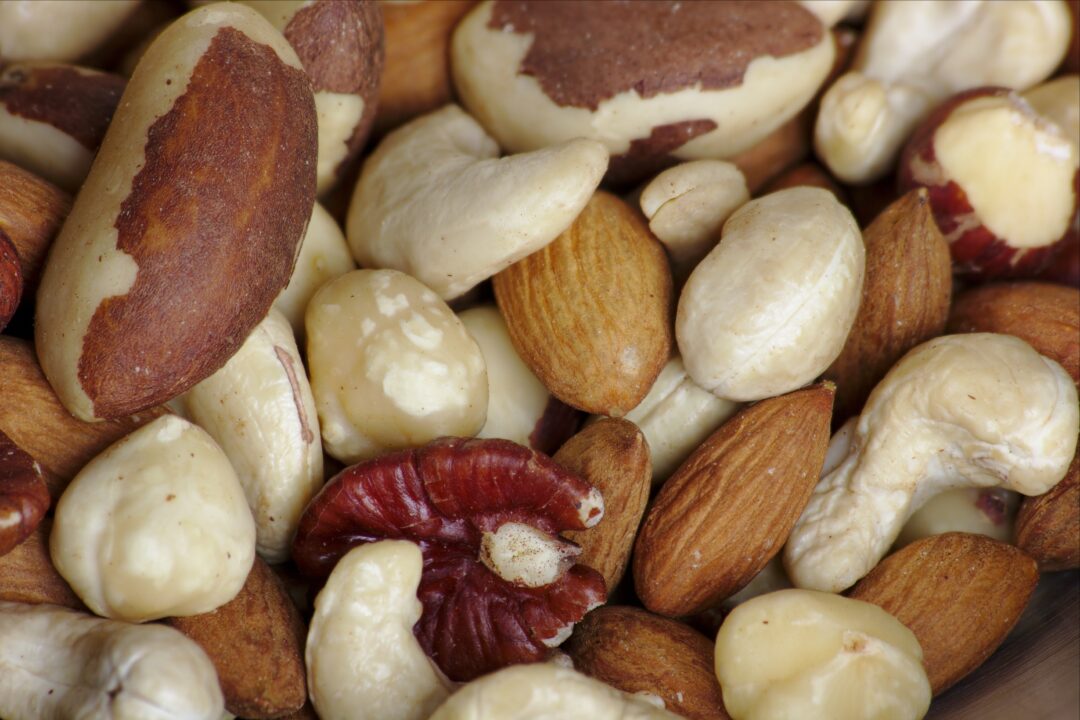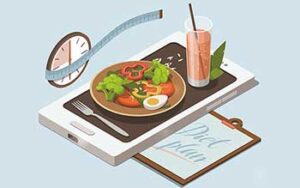What is being hungry?
We all know the feeling of being hungry and having hunger pangs, but how does being hungry affect the body and our food intake.
There are 4 main factors that determine the size and frequency of meals

Hunger vs Appetite
- Hunger- The subjective feeling that occurs when an individual wants to ingest food
- Appetite- The psychological desire to eat. Associated with the oro-sensory acceptability of a specific food
Satiation leading to Satiety
The frequency and length of a meal is governed by satiation and satiety respectively
- Satiation- determines how much is eaten at a meal.
- Satiety- when the following meal will be consumed.
What are hunger pangs?
Hunger pangs are normally the bodies reaction to being hungry. It can feel like a gnawing feeling in your stomach. Hunger pangs occur when the stomach contracts because it is empty. Keep reading to kind out why these hunger pangs might be happening and how to stop them!
Why am I getting hunger pangs and how can I stop them?
Most hunger pangs are caused by a lack of certain nutrients in your diet or having too much of something in your diet.
Lack of certain nutrients in the diet causing your hunger pangs
Protein
- Protein in the diet is considered to be more satiating (something that makes you full to satisfaction) than carbohydrate and fat. It has been shown in research that inadequate protein intake can lead to increased hunger.
- A less energy dense, high protein snack would help to control appetite and reduce hunger pangs.
A less energy dense, high protein snack would help to control appetite and reduce hunger pangs.
Fibre
- We all know that fibre is very important in the diet. One positive health benefit is that fibre impacts on satiation. This effect is believed to be caused by adding bulk and viscosity to food. This prolongs the phase of nutrient digestion and absorption.
- To increase the amount of fibre in your diet choose whole grain over refined carbohydrates, snack on nuts and seeds and include fruits and vegetables where possible. Check out this article for more tips to increase the amount of fibre in your diet.
Fat
- This is not saying you can eat high fat foods all the time, but consuming healthy fats alongside a meal or as a snack may reduce the feelings of hunger. To understand more about the difference between healthy and unhealthy fats see this article.
- Fat in the diet slows gastrointestinal transit time (meaning it takes you longer to digest your food), in turn promoting the feeling of fullness and reducing hunger pangs.
Water
- Dehydration leads to fatigue; fatigue can be combatted by the body by increasing blood sugar levels. This increase in blood sugar will be produced by your body telling you it’s time to eat something. Dehydration also means the body has to work harder to carry out basic functions. This causes the body to use more energy and again blood sugar levels to drop.
Too much of something in your diet could be causing your hunger pangs
Refined carbohydrates
- Refined carbohydrates don’t have a high fibre content. As explained earlier fibre slows down digestion in the body allowing you to feel fuller for longer and also allows your body to digest more of the nutrients in the food.
- Therefore, these refined carbohydrates cause a spike in blood sugar, followed by a subsequent drop in blood sugar which causes signals to be sent to your brain that you need to eat again. This means that you won’t stay full after your meal or snack and importantly you will not have absorbed many, if any, nutrients from the food.
- Avoiding refined carbohydrates is good practice in a healthy diet anyway, but especially if you want to reduce your hunger levels.
Alcohol
- There is mixed research around as to whether increased alcohol intake causes increased appetite. However, the research generally supports the theory that alcohol consumption leads to increased food consumption.
- Many of the alcoholic beverages we choose to consume are high in sugar and/or calories. This means that there will be a spike in blood sugar, because drinking is usually an evening activity, you are not utilising this sugar and therefore your body compensates by releasing insulin. Therefore, when you wake up the next morning you may have low blood sugar and want to eat.
Salt
- If you consume too much salt in your diet your body will try and retain water to maintain the correct balance in your body. The body requires energy to retain water and this can lead to an increased appetite.
- To prevent this, make sure that you do not consume over the recommended daily allowance of salt.
Lack of sleep
- Some studies that have looked at whether lack of sleep increases appetite have shown that those who were sleep deprived would choose larger portion sizes.
- Getting enough sleep is essential for the body to function properly. It helps regulate hormones relating to appetite. Less sleep equals an increase in appetite stimulating hormones, and a decrease in the hormones that promote feelings of fullness.
- Our article on how food affects your sleep is full of useful information.
Less sleep equals an increase in appetite stimulating hormones, and a decrease in the hormones that promote feelings of fullness.
Boredom or stress
- One trick that some supermarkets do is to pump the fresh smell from the bakery around the supermarket to tantalise your senses and subconsciously make you want to go pick up one of those products. This is part of the reason why it’s very important not to go shopping when you’re hungry, or to go with a list and stick to it to prevent too many impulse purchases.
- We have all been there when we are at work and are looking for a distraction and convince ourselves that we are hungry, just so we can go get a snack. This could just actually be just because you are bored, or because your blood sugar has dropped low. In which case you may crave a high sugar chocolate bar. However, a better choice would be some nuts or seeds as this will stave off your hunger for a longer amount of time.
Eating too fast or whilst distracted
- Those who have studied food consumption and how best to maximise the feelings of fullness have concluded that you must remove all distractions whilst you eat and slow down i.e eat mindfully.
- If you eat your meal whilst watching TV or scrolling through Instagram, then you are going to feel less full than if you focused solely on eating the meal. It will also mean that you are more aware of when you are full and prevent yourself from overrating.
Certain medications
- Some medications have a side effect of increasing your hunger levels. Always discuss with your doctor if would like to investigate changing your medication.
Increased exercise levels
- This one seems obvious but it’s important to remember that if you are increasing your physical activity levels then your body will require more energy and therefore more food. If you are looking to lose weight then you need to consume less energy than you expend.
Conclusion
Controlling hunger pangs is a helpful way to help you achieve a healthy balanced diet. Help to control your hunger pangs by planning your diet with a diet planner.
Studies discussed in the articles
Hunger and Satiety Mechanisms and Their Potential Exploitation in the Regulation of Food Intake
Tehmina Amin and Julian G. Mercer
Link- https://www.ncbi.nlm.nih.gov/pmc/articles/PMC4796328/
The effects of consuming frequent, higher protein meals on appetite and satiety during weight loss in overweight/obese men
Heather J Leidy, Minghua Tang, Cheryl L H Armstrong, Carmen B Martin, Wayne W Campbell
Link- https://pubmed.ncbi.nlm.nih.gov/20847729/


